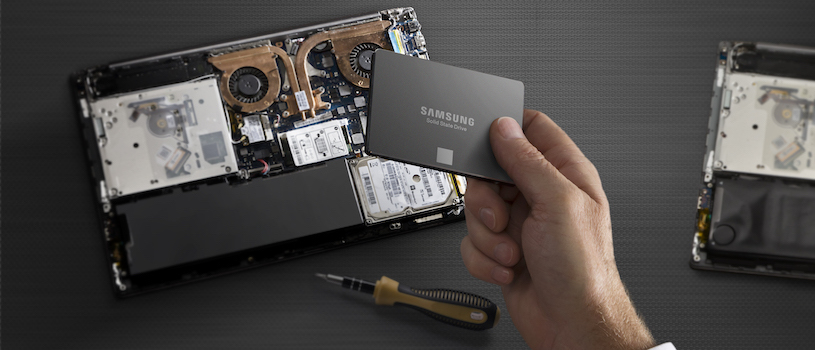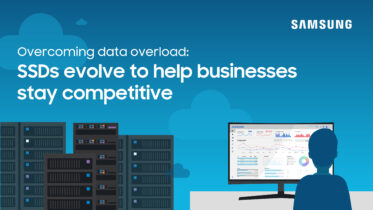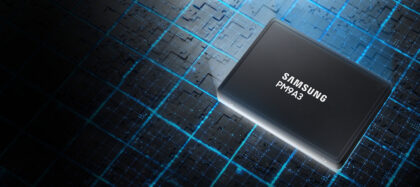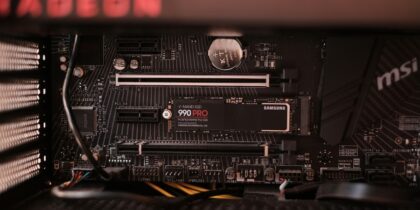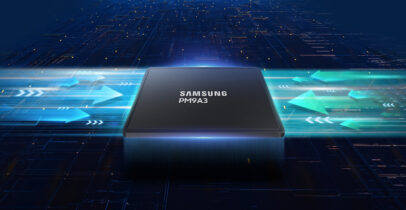While many desktop PC users may be happy with basic solid state disks or even hard disks, gamers are often seeking the best performance possible from their systems and are frequently looking for the best SSDs for gaming. Manufacturers of custom gaming systems such as Maingear have turned to SSDs to get the best performance possible.
As applications go, computer games can place more stress on a computer than almost any other. Every subsystem — CPU, RAM, graphics, networking and storage — is worked to the max.
The graphics processing unit (GPU) is considered by many to be the most critical part of a gaming system, and it can have a huge impact on gaming performance, particularly on real-time simulations where the frame rate is the most important criteria for a seamless experience. However, as anyone who has waited minutes for the next section of a game to load can testify, the SSD benefits of speed, low latency and fantastic transfer rates come in a close second — and may even be first in games with large maps or high-intensity graphics.
Discover the Cost Advantages of SSDs
Read this white paper on the total cost of ownership advantages of using SSDs. Download Now
Staying within the same year of manufacture, a really high-end CPU or graphics card might triple or quadruple the performance of a basic version, but considering all the options, a top-of-the-line SSD can better the transfer rates of a basic hard drive by 10x or even 20x. Until recently, the trade-off was capacity. Gamers want terabytes, or even multiple terabytes, to accommodate the 10 GB or larger size of many games, while cost was limiting their choices to low-capacity SSDs or high-capacity HDDs. Maingear uses Samsung 960 PRO SSDs with capacities of up to 2TB in its systems.
Increasing SSD Capacities
However, the recent innovations in V-NAND construction created multilayer SSDs with 48 or 64 layers, resulting in SSDs with 2 or 4 TB of capacity and even better performance than previous generations. SSD benefits are obvious for gamers — enabled by the Non-Volatile Memory Express host controller interface, transfer rates can go from around 120 megabytes per second (MB/s) for HDDs, to 500-600 MB/s for SATA SSDs, to 3,500 MB/s for NVMe SSDs. These speeds can translate into decreased load times, sometimes by half or more.
The best SSDs for gaming are NVMe SSDs like the Samsung 960 PRO/EVO, which can produce huge gains in performance while generating less heat and using less power, a real plus in systems with multiple graphics cards. With high-end gaming systems using water cooling for CPU, memory, graphics cards and more, a part that uses less power can be a big benefit.
For systems without support on the motherboard for the NVMe interface, the best SSDs for gaming are SATA 6 GB/s SSDs like the Samsung 850 PRO, which offer over 550 MB/s read speeds and low costs as well.
For gamers looking for the ultimate in performance, systems without specific NVMe support on the motherboard can accommodate NVMe drives using an inexpensive PCI Express with an NVMe drive slot attached. The NVMe drive is mounted on the card, which is then mounted on a 4x PCIe slot.
Fortunately for gamers, and business users, V-NAND technology has resulted in rapid increases in SSD capacity without huge increases in prices. This means that not only can gamers use this technology for the latest releases, but enterprises can also incorporate it to handle high-capacity data applications and programs. There are business applications such as video and sound editing, software coding and compiling and special effects development that can also benefit greatly from the very fast SSDs that gamers prefer.
Find the best storage solutions for your business by checking out our award-winning selection of SSDs for the enterprise.
